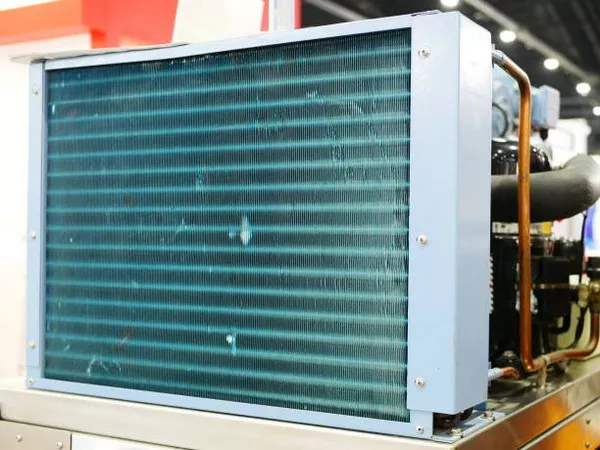Power outages can strike at the most inconvenient times, leaving us in the dark, disrupting our daily routines, and potentially jeopardizing our safety. While they can be caused by various factors such as severe weather, equipment failure, or grid issues, one reliable solution to counteract the inconvenience of power loss is a generator. Generators are a versatile and valuable tool that can keep your essential appliances and lights running when the grid fails. In this article, we will discuss how to effectively use a generator during a power outage to ensure your safety, comfort, and peace of mind.
Choosing the Right Generator
The first step in preparing for a power outage is selecting the right generator. Generators come in various sizes, types, and fuel options. To make an informed choice, consider the following factors:
a. Power Requirements: Calculate the wattage of the appliances and devices you need to power during an outage. This will help you determine the generator size you need. You can find this information on the device labels or in their user manuals.
b. Fuel Type: Generators typically run on gasoline, propane, or diesel fuel. Choose a generator that uses a fuel source readily available to you and suits your preferences.
c. Portability: If you anticipate needing a generator for various purposes, consider a portable model with wheels and handles for easy transportation.
d. Noise Level: If noise is a concern, look for generators with low decibel ratings, especially if you have close neighbors.
e. Run Time: Generators have different run times on a single tank of fuel. Choose one that can meet your needs without constant refueling.
Installation and Safety Precautions
Before you can put your generator to use, you need to install it correctly and ensure the safety of your home and family:
a. Location: Place the generator outdoors in a well-ventilated area to prevent carbon monoxide buildup. Never operate it inside your home, garage, or near windows, doors, or air intake vents.
b. Transfer Switch: For a seamless transition from the grid to the generator, install a transfer switch by a qualified electrician. A transfer switch isolates your home from the grid and prevents back-feeding, which can be dangerous to utility workers.
c. Grounding: Properly ground the generator according to the manufacturer’s guidelines to minimize the risk of electrical shock or fire.
d. Extension Cords: Use heavy-duty, outdoor-rated extension cords to connect appliances to the generator. Ensure that they are in good condition and appropriate length to avoid overloading and voltage drop.
e. Fire Safety: Keep a fire extinguisher nearby and ensure all flammable materials are kept away from the generator and its exhaust.
Starting and Operating the Generator
Once your generator is set up and all safety precautions are in place, it’s time to start and operate it effectively:
a. Read the Manual: Familiarize yourself with the generator’s user manual to understand the starting procedure and any specific maintenance requirements.
b. Fuel and Oil: Ensure that the generator is adequately fueled and has the correct oil level before starting it.
c. Starting Sequence: Start the generator following the manufacturer’s instructions. Typically, this involves turning the fuel supply on, setting the choke, and pulling the starter cord or pushing the start button.
d. Load Management: To prevent overloading the generator, power your essential appliances one at a time, starting with the most critical ones. Turn on larger appliances, like the refrigerator, after the generator has stabilized.
e. Monitor Fuel Levels: Keep an eye on the fuel level and refill as needed to maintain a steady power supply.
f. Regular Maintenance: Follow the manufacturer’s maintenance schedule, including oil changes and air filter replacements, to keep the generator in optimal working condition.
Prioritizing Essential Appliances
During a power outage, it’s essential to prioritize your electrical devices and appliances. Focus on powering the most critical items to ensure your comfort and safety:
a. Safety and Health: First and foremost, power critical safety equipment, such as sump pumps, medical devices, and emergency lighting.
b. Refrigeration: Keep your refrigerator and freezer running to prevent food spoilage.
c. Heating and Cooling: Use the generator to operate heating or cooling equipment, depending on the season.
d. Communication: Ensure you can stay connected by powering essential communication devices like your smartphone, radio, or television.
e. Lighting: Use the generator to keep lights on in key areas of your home to maintain visibility and safety.
Generator Etiquette
Consider your neighbors when using a generator during a power outage. Here are some tips to maintain good relations:
a. Noise Control: If your generator is particularly loud, try to limit its operation to essential hours and consider using noise-reducing measures.
b. Inform Neighbors: Let your neighbors know that you are using a generator and explain your outage situation to maintain open communication.
c. Offer Assistance: If you have neighbors in need, offer to share your generator’s power to help them with essential tasks.
Emergency Planning
Power outages can be unpredictable, so it’s essential to have an emergency plan in place:
a. Prepare an Emergency Kit: Create an emergency kit with essential supplies, including food, water, flashlights, batteries, and a first-aid kit.
b. Stay Informed: Keep a battery-operated radio or smartphone with regular updates to stay informed about the outage and any emergency instructions.
c. Evacuation Plan: Have a plan in case you need to evacuate your home due to an extended outage, especially if it’s caused by a severe weather event.
d. Generator Fuel: Always store an adequate supply of fuel in a safe, well-ventilated area.
Conclusion
Generators are valuable tools that can provide power during a power outage, ensuring your safety and comfort. However, it’s crucial to choose the right generator, install it correctly, prioritize essential appliances, and follow safety precautions. Additionally, be considerate of your neighbors and have a comprehensive emergency plan in place. By following these guidelines, you can effectively harness the power of a generator when the lights go out, ensuring peace of mind during unexpected outages.

